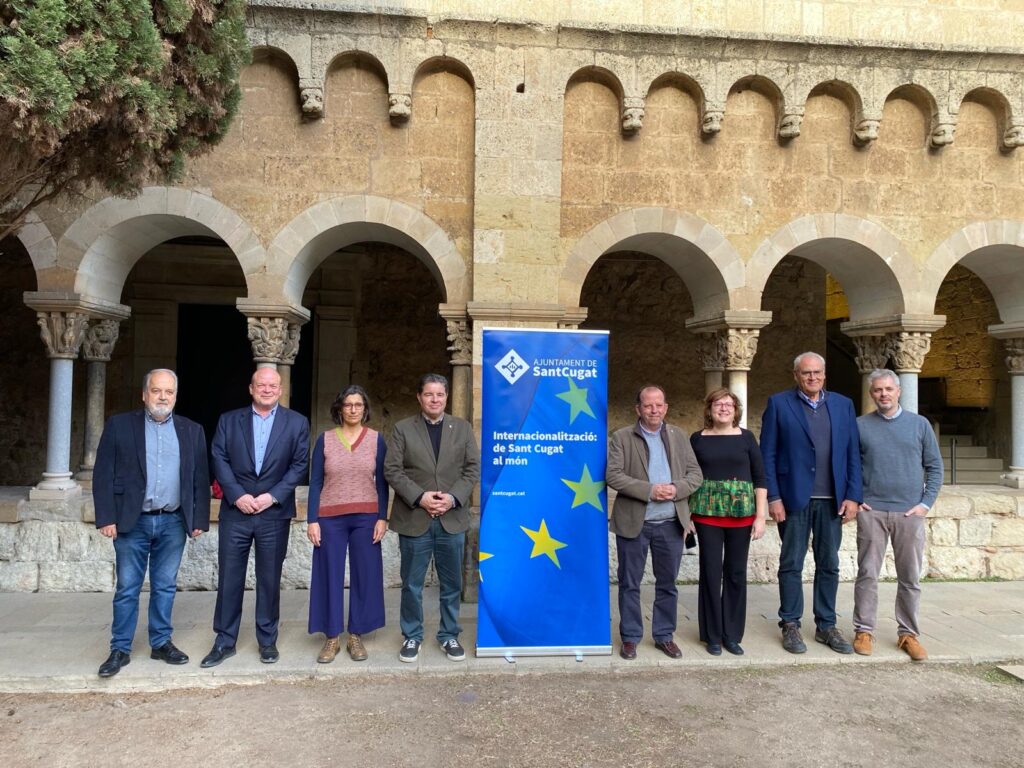On Thursday, the Sant Cugat Local Council hosted an internationalisation day entitled ‘Why Europe? Building the International Image of Sant Cugat del Vallès Together’. The event, organised in the cloister of the Monestir Museum, gathered important companies and academic and cultural institutions in the city to present the strategic lines of action on internationalisation and the underlying European Union roadmap being promoted by the local authorities.
The day was officially opened and presented by the Local Councillor for Business, Innovation and Internationalisation and Energy of Sant Cugat Local Council, Albert Salarich. His introduction gave way to a round table discussion that involved local benchmark individuals with experience in projects co-funded by European institutions, such as Sant Cugat Creix, the Música Simfònica i de Cambra Private Foundation, Escola Àgora, Escola d’Art i Disseny and Moventia, also on behalf of Sant Cugat Empresarial (SCE).
Elena Aguarta, Head of Regulatory Affairs at Moventia, highlighted the extensive portfolio of subsidies received by Moventia, both from European funds and Next Generation funds, due to the various activities undertaken by the company in the field of collective and individual mobility. She specifically said that “Moventia’s experience with these subsidies dates back to even before the pandemic and we now have over 400 applications focused on four areas: digitalisation, fleet renovation, charging infrastructure and solar panels”.
The Head of Regulatory Affairs at Moventia also stressed that large companies encounter more restrictions than you might think when applying for this kind of financial support. “Besides the bureaucratic paperwork and constant changes being made to the criteria during the application process, large companies are limited to a maximum of 15% subsidies, meaning that the intended project certainly has to be quite a safe bet and significant resources need to be dedicated to it”. She went on to offer a recommendation to organisations with less experience and resources, advising that they always be accompanied by professionals “who can help you find windows that are genuinely interesting to each organisation, otherwise it is very easy to get lost during the process”. Nonetheless, Elena Aguarta also emphasised the benefits of these subsidies. “You meet very interesting people and discover very interesting projects from all over the world. It is highly enriching and a clear incentive for launching new ideas that can help improve the company and society in general. I encourage everyone to do it”. The other people taking part in the round table discussion were: Miquel Martínez, Chairman of Sant Cugat Creix; Josep Ferré, Vice-President of the Música Simfònica i de Cambra Private Foundation; Jordi Ros, Director of l’Escola Àgora; and Eva Virgili, Director of l’Escola d’Art i Disseny.

